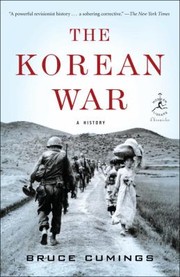Out of all of the books I read this year, I think this one was the most impactful. As Cummings notes about the war, citing Richard Stokes (p. 92):
… the thing we need to know first: it was a civil war, a war fought primarily by Koreans from conflicting social systems, for Korean goals. It did not last three years, but had a beginning in 1932, and has never ended.
For Americans, the war has largely been “forgotten”, in that its public memory is tinged with shame and obscured by the fog of the cold war. But, our understanding is harmed by truncating the war to 3 years in the 1950s. Chapter 5, “38 degrees of separation: a forgotten occupation, illustrates how the US unilaterally determined how Korea would be divided postwar, and set up an occupation government. In 1946, the occupation commander (General Hodge) took steps against direct orders from Washington to begin remilitarizing the South. The US-advised Korean Army and National Police of the South were then used to suppress rebellions and suppress the people’s committees that had emerged in 1945 (independent of the North). These uprisings were born from Korean frustration with the American occupation and political repression. Research cited by Cummings suggests that perhaps as many as 100,000 Koreans were killed before June 1950; it’s likely that most of these deaths stem from the repression of an uprising on Cheju island in the southeast.
I agree with Cummings assertion that it’s critical to understand the conflict we’ve named the “Korean War” as being emerged from a longer history of occupation and imperialism. Rather than respecting Korean rights to self-determination, the country (and its people) has been continually subordinated to the interests of more militarily and economically powerful states. As US citizens, we have an obligation to understand the nature of this conflict and how its consequences continue to shape the local and international politics of Korea. If you were to pick up only one of the books I’ve listed from this year, this is the one I’d give you.
